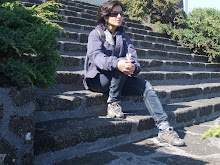(Photo Courtesy: AP)
Amnesty International interviewed a survivor of the conflict in Sri Lanka between the LTTE and the Sri Lankan government’s armed forces. Vasuki (name changed) gives us a brief snapshot of what it was like living in the war zone trying to stay alive with 2 small children.
“In December 2008 I was living in Kilinochchi when my home came under aerial attack. We were displaced to Viswamadhu in Mullaitivu. The early days of displacement were not too difficult as Viswamadhu is an agricultural area. It was when we moved to PTK that we started to feel the pinch. We lived in a tent over a bunker. When there was no attack or shelling we could cook outside but when shelling was heavy we had to stay in the bunker for hours cooking and living there. For weeks my kids did not talk, they were so scared. They had to witness people dying from shell attacks and the memory of dead bodies lying all around will probably never vanish.
In March we had to move to Matalan in Mullivaikkal – this was crammed with tens of thousands of people. By now people had finished their supplies and eaten all they had, even their cattle. I had to fast so that I could feed my children and just drank the water I cooked the rice in. Elderly people collapsed around us or slipped into comas. I have to admit I tried to kill myself because I was so depressed but my daughters begged me not to give up. What kept us going was a belief that the UN would intervene to stop the terrible human suffering.
Shelling got steadily worse. Then on 15 May a huge explosion forced us to move towards Vella Mullivaikkal. I can’t describe the horror around us - we had to fight our way across a carpet of dead bodies. We finally made our way to Vatavahal bridge. Along the way the Army fired at us.
I find it hard to talk about this time.... people were also not happy with the LTTE as they forcibly recruited from families. What I know is that people want to live in peace but we cannot forget all those we left behind. You can’t give us back what we lost but you can give us justice”.
If Vasuki’s story moves you please take action by signing a petition to call on the UN to open an independent investigation into war crimes committed by both sides.



